Ditapis dengan

Shaping natural history and settler society :Mary Elizabeth Barber and the ni…
This book explores the life and work of Mary Elizabeth Barber, a British-born settler scientist who lived in the Cape during the nineteenth century. It provides a lens into a range of subjects within the history of knowledge and science, gender and social history, postcolonial, critical heritage and archival studies. The book examines the international importance of a marginalized scientist, th…
- Edisi
- -
- ISBN/ISSN
- 9783030226398
- Deskripsi Fisik
- xxiv, 360p. : ill.
- Judul Seri
- -
- No. Panggil
- 968.703092 HAM s

The Web as history:using web archives to understand the past and the present
This article puts on the agenda one of the fundamental theoretical questions within the emerging field of website history: how can the object of historical study — the website — be delimited? Its focus is on the 'website' artefact as a medium and a text. After elaborating a definition of the website, as well as discussing how the website is distinct from other possible analytical web object…
- Edisi
- -
- ISBN/ISSN
- 9781911307563
- Deskripsi Fisik
- 296 p.; 22 cm.
- Judul Seri
- -
- No. Panggil
- 310 BRU w

International review of environmental history :volume 6, issue 1, 2020
International Review of Environmental History takes an interdisciplinary and global approach to environmental history. It encourages scholars to think big and to tackle the challenges of writing environmental histories across different methodologies, nations, and time-scales. The journal embraces interdisciplinary, comparative and transnational methods, while still recognising the importance o…
- Edisi
- -
- ISBN/ISSN
- 22053212
- Deskripsi Fisik
- 125p. : ill.
- Judul Seri
- -
- No. Panggil
- 333.7 INT i
Responding to the west:essays on colonial domination and Asian agency
The nine essays of this volume, spanning from the eighteenth to mid-twentieth century, highlight the workings of, and reactions to, colonial domination in Asian contexts. The scholars, which include Victoria Haskins of the University of Newscastle, use a range of social science history methods to explore new paths to colonial history. How were individuals, groups, and social categories able to …
- Edisi
- -
- ISBN/ISSN
- 9789048508204
- Deskripsi Fisik
- 181 p. : ill., map ; 24 cm.
- Judul Seri
- -
- No. Panggil
- 325.3095 RES r

The Heritage of Arung Palakka:a history of South Sulawesi (Celebes) in the se…
A History of South Sulawesi in the seventeeth century
- Edisi
- -
- ISBN/ISSN
- 9789004287228
- Deskripsi Fisik
- ix, 353 p., [9] p. of plates : maps ; 24 cm.
- Judul Seri
- -
- No. Panggil
- 959.84 AND t

Planter and peasant:colonial policy and the agrarian struggle in east Sumatra…
- Edisi
- -
- ISBN/ISSN
- 9789004287150
- Deskripsi Fisik
- xii, 199p.: ill.
- Judul Seri
- -
- No. Panggil
- 330.95986 PEL p
- Edisi
- -
- ISBN/ISSN
- 9789004287150
- Deskripsi Fisik
- xii, 199p.: ill.
- Judul Seri
- -
- No. Panggil
- 330.95986 PEL p

New Pacific diplomacy
Since 2009 there has been a fundamental shift in the way that the Pacific Island states engage with regional and world politics. The region has experienced, what Kiribati President Anote Tong has aptly called, a ‘paradigm shift’ in ideas about how Pacific diplomacy should be organised, and on what principles it should operate. Many leaders have called for a heightened Pacific voice in globa…
- Edisi
- -
- ISBN/ISSN
- 9781925022810
- Deskripsi Fisik
- xx, 305 pages : illustrations (some color), map ; 25 cm
- Judul Seri
- -
- No. Panggil
- 327.2 FRY n

Across anthropology:troubling colonial legacies, museums and the curatorial
How can we rethink anthropology beyond itself? In this book, twenty-one artists, anthropologists, and curators grapple with how anthropology has been formulated, thought, and practised ‘elsewhere’ and ‘otherwise’. They do so by unfolding ethnographic case studies from Belgium, France, Germany, Italy, the Netherlands, and Poland – and through conversations that expand these geographies…
- Edisi
- -
- ISBN/ISSN
- 9789461663177
- Deskripsi Fisik
- 434p.: ill.
- Judul Seri
- -
- No. Panggil
- 301 ACR a
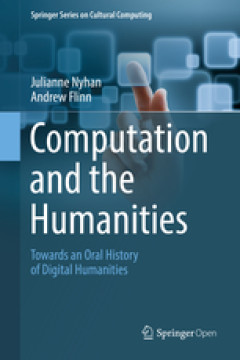
Computation and the humanities:towards an oral history of digital humanities
This book addresses the application of computing to cultural heritage and the discipline of Digital Humanities that formed around it. Digital Humanities research is transforming how the Human record can be transmitted, shaped, understood, questioned and imagined and it has been ongoing for more than 70 years. However, we have no comprehensive histories of its research trajectory or its discipli…
- Edisi
- -
- ISBN/ISSN
- 9783319201696
- Deskripsi Fisik
- 285 p.; 22 cm.
- Judul Seri
- -
- No. Panggil
- 384.648 NYH c
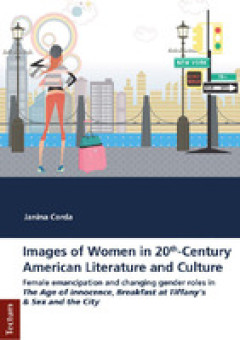
Images of Women in 20th-Century American Literature and Culture :Female emanc…
What do The Age of Innocence, Breakfast at Tiffany’s, and Sex and the City have in common? Strong women ahead of their time! Being part of New York’s middle and upper class, Ellen Olenska, Holly Golightly and Carrie Bradshaw & Co. cherish their otherness and strive for personal freedom and gender equality, thereby trying to combine traditional longings and modern beliefs. However, though si…
- Edisi
- -
- ISBN/ISSN
- 9783828836808
- Deskripsi Fisik
- 119 p.
- Judul Seri
- -
- No. Panggil
- 810.9005 COR i
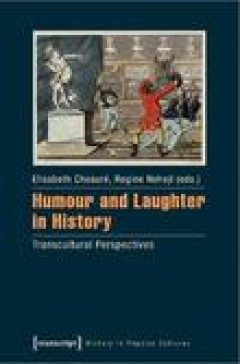
Humour and laughter in history transcultural perspectives
Humour can be used as a »weapon« or as a means of coping with problematic historical events, especially in times of war and crisis. The book presents examples from different cultures (Russia, Europe, USA), from different historical epochs (from the Napoleonic era up to the current time) and from different medias (caricature, journalism, film). By looking at the individual cases it becomes pos…
- Edisi
- -
- ISBN/ISSN
- 9783837628586
- Deskripsi Fisik
- 137 p.; 22 cm.
- Judul Seri
- -
- No. Panggil
- 909 HUM h

Indic manuscript cultures through the ages. material, textual, and historical…
This collection of essays explores the history of the book in pre-modern South Asia looking at the production, circulation, fruition and preservation of manuscripts in different areas and across time. Edited by the team of the Cambridge-based Sanskrit Manuscripts Project and including contributions of the researchers who collaborated with it, it covers a wide range of topics related to South As…
- Edisi
- -
- ISBN/ISSN
- 9783110543100
- Deskripsi Fisik
- xviii, 783 p.; 22 cm.
- Judul Seri
- -
- No. Panggil
- 091 IND i
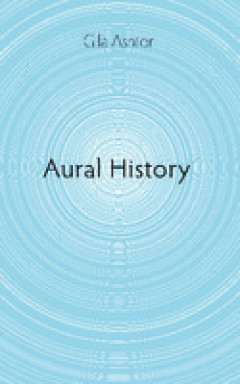
Aural history
Aural History is an anti-memoir memoir of encountering devastating grief that uses experimental storytelling to recreate the winding, fractured path of loss and transformation.Written by a thirty-something psychotherapist and queer theorist, Aural History is structured as a sequence of three sections that each use different narrative styles to represent a distinctive stage in the protagonist’…
- Edisi
- -
- ISBN/ISSN
- 9781950192670
- Deskripsi Fisik
- 324 p.; 22 cm.
- Judul Seri
- -
- No. Panggil
- 155.413 ASh a
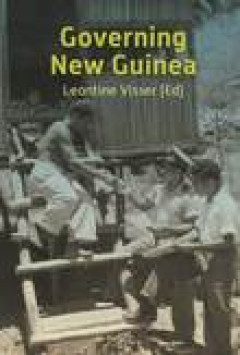
Governing New Guinea; an oral history of Papuan administrators, 1950-1990
This is the first time that indigenous Papuan administrators share with an international public their experiences governing their country. These administrators were the brokers of development. After graduating from the School for Indigenous Administrators (OSIBA) they served in the Dutch administration until 1962. The period 1962-1969 stands out as turbulent and dangerous, and for many curtaile…
- Edisi
- -
- ISBN/ISSN
- 9789067183932
- Deskripsi Fisik
- x, 358 p.; 22 cm.
- Judul Seri
- -
- No. Panggil
- 995.304 GOV g
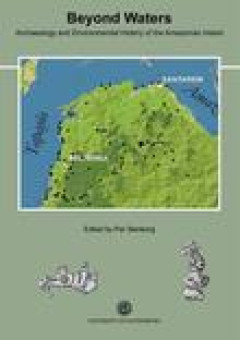
Beyond waters:archaeology and environmental history of the Amazonian Inland
This book is one of the outcomes of the project Cultivated Wilderness: Socio-economic development and environmental change in pre-Columbian Amazonia (http://www.cultivated-wilderness.org/). The project has particularly focused on the previously relatively unknown prehistory of the Amazonian hinterland. Our work has revealed that pre-Columbian settlements in the Santarém region in the State of …
- Edisi
- -
- ISBN/ISSN
- 9789185245666
- Deskripsi Fisik
- 129 p.; 22 cm.
- Judul Seri
- -
- No. Panggil
- 981.1 BEY b

The Latin New Testament :a guide to its early history, texts, and manuscripts
This book provides a comprehensive introduction to the history and development of the Latin New Testament and a user’s guide to the resources available for research and further study. The first five chapters offer a new historical synthesis, bringing together evidence from Christian authors and biblical manuscripts from earliest times to the late Middle Ages. Each witness is considered in its…
- Edisi
- -
- ISBN/ISSN
- 9780198744733
- Deskripsi Fisik
- XVII, 366 p.
- Judul Seri
- -
- No. Panggil
- 225.5209 HOU l
Past, present and future of historical information science
This book evaluates the results of two decades of research in ‘history and computing’. In spite of the fact that a lot has been accomplished, the report indicates critical places for improvement. Many historians and other humanities scholars seem satisfied with standard office tools, which do not always suit their complex sources and research questions. While more and more archival sources …
- Edisi
- -
- ISBN/ISSN
- 9069844133
- Deskripsi Fisik
- 129p.: ill.
- Judul Seri
- -
- No. Panggil
- 020.9 BOO p
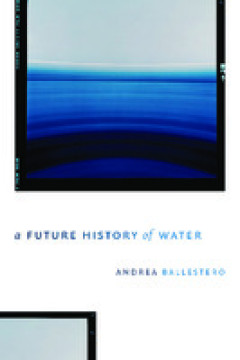
future history of water
Based on fieldwork among state officials, NGOs, politicians, and activists in Costa Rica and Brazil, A Future History of Water traces the unspectacular work necessary to make water access a human right and a human right something different from a commodity. Andrea Ballestero shows how these ephemeral distinctions are made through four technolegal devices—formula, index, list and pact. She arg…
- Edisi
- -
- ISBN/ISSN
- 9781478004516
- Deskripsi Fisik
- xvii, 232p.: ill.
- Judul Seri
- -
- No. Panggil
- 333.339 BAL f
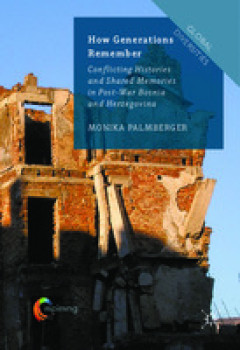
How generations remember:conflicting histories and shared memories in post-wa…
This book provides a profound insight into post-war Mostar, and the memories of three generations of this Bosnian-Herzegovinian city. Drawing on several years of ethnographic fieldwork, it offers a vivid account of how personal and collective memories are utterly intertwined, and how memories across the generations are reimagined and ‘rewritten’ following great socio-political change. Focus…
- Edisi
- -
- ISBN/ISSN
- 9781137450630
- Deskripsi Fisik
- 1 electronic resource (xvii, 254 pages )
- Judul Seri
- -
- No. Panggil
- 301 PAL h

Anti-vivisection and the profession of medicine in Britain :a social history
This book explores the social history of the anti-vivisection movement in Britain from its nineteenth-century beginnings until the 1960s. It discusses the ethical principles that inspired the movement and the socio-political background that explains its rise and fall. Opposition to vivisection began when medical practitioners complained it was contrary to the compassionate ethos of their profes…
- Edisi
- -
- ISBN/ISSN
- 9781137556974
- Deskripsi Fisik
- xxi, 217p. : ill.
- Judul Seri
- -
- No. Panggil
- 179.4 BAT a
 Karya Umum
Karya Umum  Filsafat
Filsafat  Agama
Agama  Ilmu-ilmu Sosial
Ilmu-ilmu Sosial  Bahasa
Bahasa  Ilmu-ilmu Murni
Ilmu-ilmu Murni  Ilmu-ilmu Terapan
Ilmu-ilmu Terapan  Kesenian, Hiburan, dan Olahraga
Kesenian, Hiburan, dan Olahraga  Kesusastraan
Kesusastraan  Geografi dan Sejarah
Geografi dan Sejarah